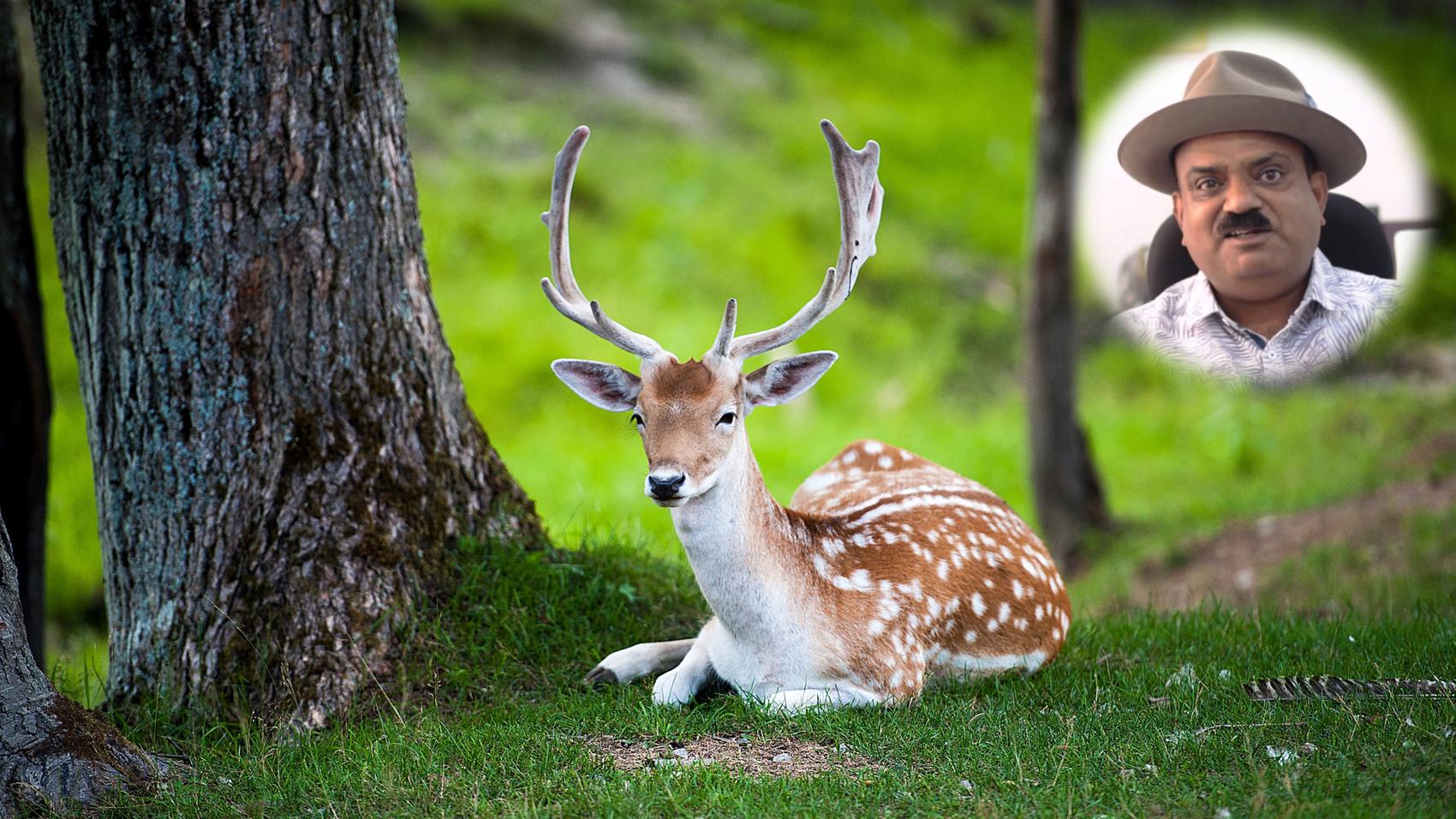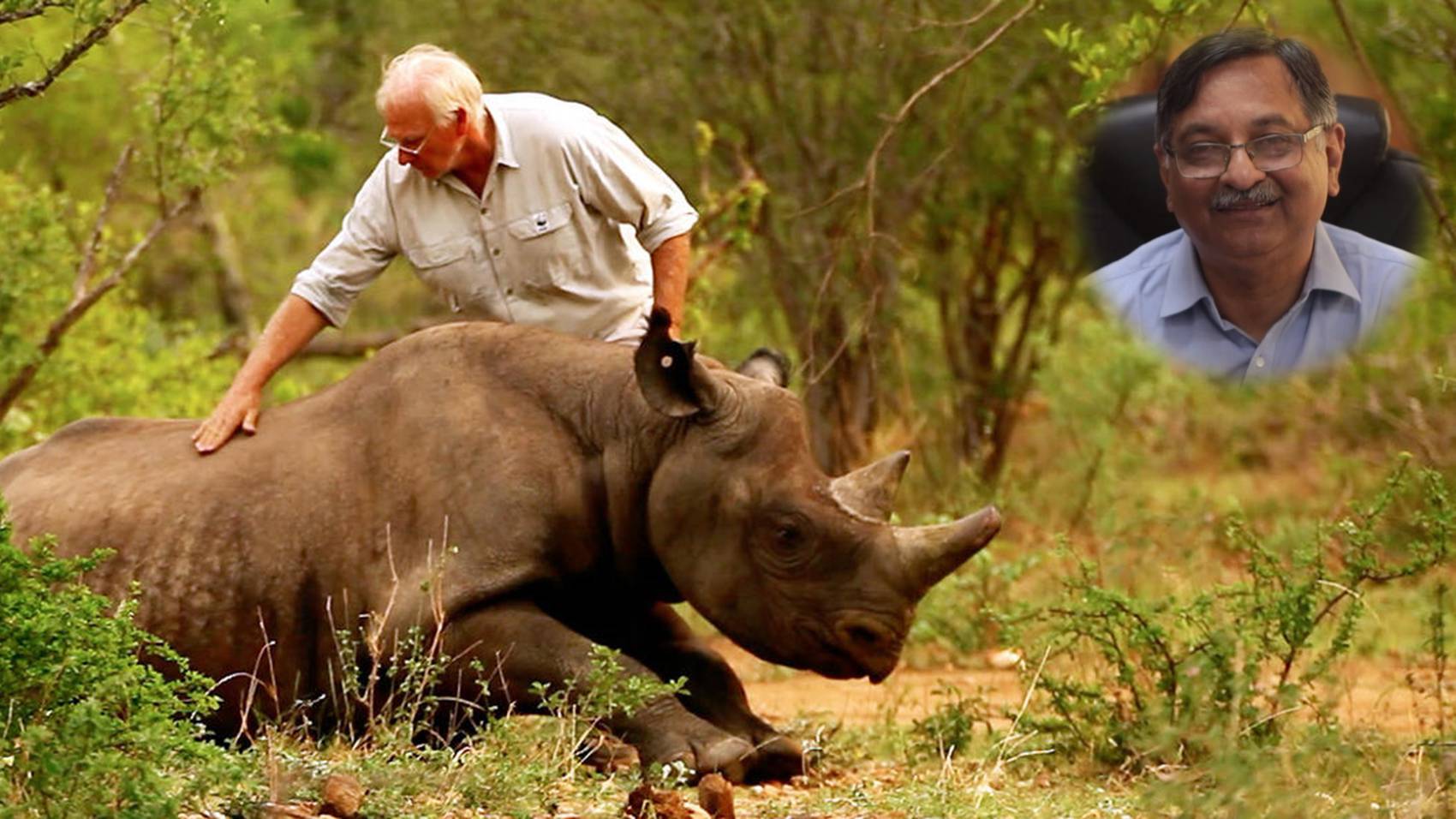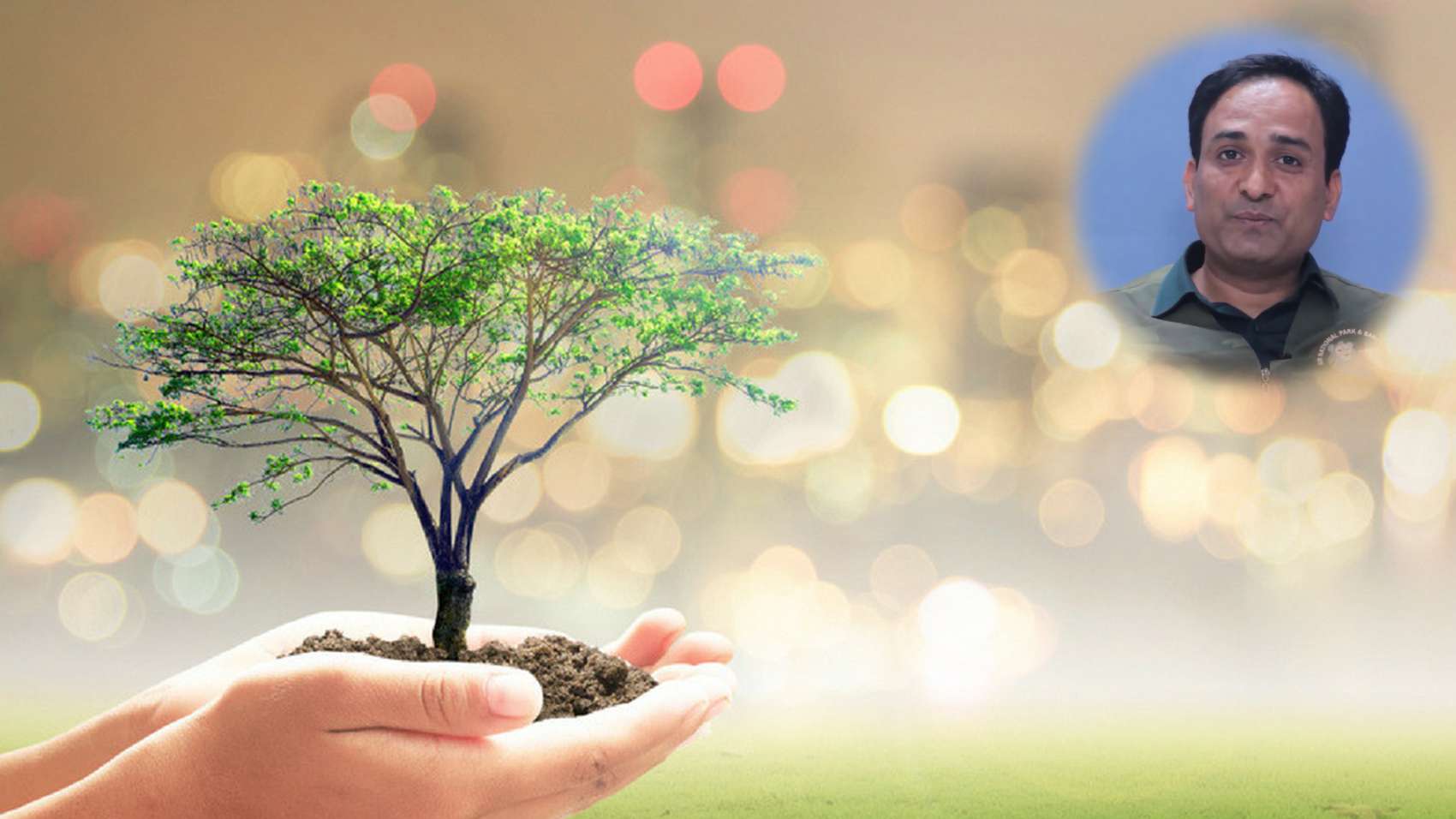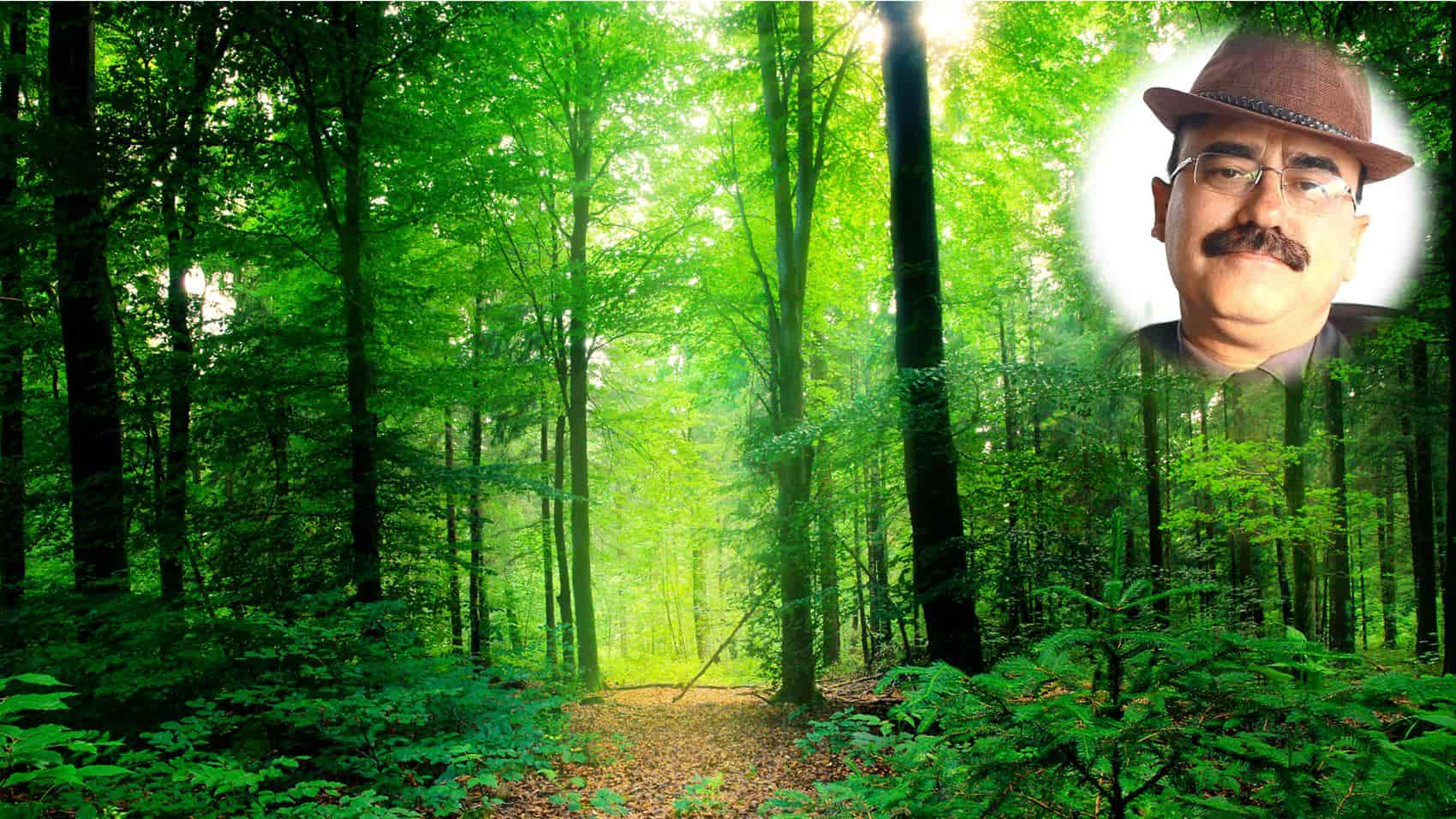Indian Forest Service
G S Pande | Chief Conservator of Forest | Uttarakhand Forest DepartmentWhat is Indian Forest Service?
Indian Forest Service is a great Career option. Unfortunately, it is very difficult to find information about What Indian Forest Service actually is. Most pages on the internet just talk about How to get into Indian Forest Service. Just like you would normally not trust a non Doctor with names of medicines, you should also not trust opinions about Indian Forest Service from non professionals.
Chief Conservator of Forest G S Pande has 26 years & 11 months of professional experience in Indian Forest Service. According to Chief Conservator of Forest G S Pande, Indian Forest Service is:
Indian Forest Service is concerned with overall administrative, economic, legal, and social aspects, as well as scientific and technical aspects, such as silviculture, protection, and forest regulation. This includes management for aesthetics, fish, recreation, urban values, water, wilderness, wildlife, wood products, forest genetic resources, and other forest resource values.
How Chief Conservator of Forest G S Pande got into Indian Forest Service?
I have done my schooling from L P Govt. Inter College, Bhimtal. I then did B Sc in Geology, Botany, Forestry and M Sc in Forestry. I am from 1992 batch Uttarakhand cadre. I am Chief Conservator of Forest in Forest Department of Uttarakhand.
Chief Conservator of Forest G S Pande's Talk on Indian Forest Service |
|
| Starts with what is: | |
| 1) | Indian Forest Service |
| Next, it covers Education. In this Talk Education was discussed as theoretical topics needed to excel at Indian Forest Service, and not as Qualifications needed to enter Indian Forest Service. It discusses following headings for Education in Indian Forest Service: | |
| 2) | Nature |
| 3) | Life Sciences |
| 4) | Forestry |
| 5) | Environmental Sciences |
| 6) | Laws |
| 7) | Technology |
| 8) | Languages |
| Then, the Talk focuses on the most important component that is Skills. 90% success in Indian Forest Service depends on Skills. It is crucial to understand these. Here is a list of Skills required for Indian Forest Service: | |
| 9) | Leadership |
| 10) | Public Interface |
| 11) | Documentation Skills |
| 12) | Physical Fitness |
| 13) | Problem Solving |
| 14) | Diplomatic Skills |
| 15) | Resource Management |
| It is important to get an understanding of the Positives of Indian Forest Service. These are the Positives of Indian Forest Service: | |
| 16) | Voice of Nature |
| 17) | Proximity to Nature |
| 18) | Dynamic Work Environment |
| 19) | Opportunity for National Integration |
| 20) | Diverse Career Opportunities |
| 21) | International Dimension |
| 22) | Contribution to Society |
| Challenges are the other side of Positives and Indian Forest Service is no exception: | |
| 23) | Man-Animal Conflict |
| 24) | Organised Crime |
| 25) | Limited Resources |
| 26) | Law Enforcement |
| 27) | Open Treasure |
| In the final section of the Talk, G S Pande talks about How a day goes in a Career in: | |
| 28) | Indian Forest Service |
Install the LifePage App to:
- (for Free) Watch Chief Conservator of Forest G S Pande’s full Indian Forest Service Career Talk
- (for ? 100 or ? $ 1.4) Do a Self Assessment on Indian Forest Service to calculate your Dream Index, which is defined as:
According to G S Pande your chances of success in Indian Forest Service is __%
- Access your personalized Dream Index Report which will have all your Dream Indices sorted in descending order.


How to get into
Indian Forest Service?
If you are want to get into Indian Forest Service, start by investing in a Career Plan.
The 14 hour process, guided by a LifePage Career Advisor, will help you introspect and check whether your interest in Indian Forest Service is merely an infatuation or is it truly something you wish to do for the rest of your life.
Next, your Career Advisor will help you document how you can get into Indian Forest Service, what education and skills you need to succeed in Indian Forest Service, and what positives and challenges you will face in Indian Forest Service.
Finally, you will get a Career Plan stating which Courses, Certifications, Trainings and other Items you need to do in the next 7 years to become world’s best in Indian Forest Service.
LifePage Career Plan
14 hour personalized guidance program


Your LifePage Career Advisor facilitates your guided introspection so that you systematically explore various Career options to arrive at a well thought out Career choice.
Next: your Advisor helps you figure out how you will get into your chosen Career and how will you develop the skills needed for success in your Chosen Career.
LifePage Plan will not stop at saying "to become an Architect study Architecture". It will guide you on which Certifications, Trainings and Other items you need to do along with your Architecture education to become the world's best Architect.
Links for this Talk
LifePage Career Talk on Indian Forest Service

[Career]
https://www.lifepage.in/careers/indian-forest-service-1

[Full Talk]
https://lifepage.app.link/20180411-0001

[Trailer]
https://www.youtube.com/watch?v=X1ShgM2h2Ig
(Indian Forest Service, G S Pande, Uttarakhand Forest Department, Chief Conservator of Forest, IFS, Officer, Nature, Wildlife, Manager, Management)
Similar Talks
Indian Forest Service (भारतीय वन सेवा) is one of the Civil Services of India and belongs to the All India Services group, with other two All India Services being the Indian Administrative Service (IAS) and the Indian Police Service (IPS). The selection is done by the Union Government and after that the cadres are allocated to work for different state and central government departments. This service is important to maintain the national integrity and to maintain the federal structure.
"After completing my graduation from Gandhi Faizan College, Shahjahanpur, I appeared for UPSC exam in 1983 and cleared for Indian Forest Service. I am presently the Principal Chief Conservator of Forest, Government of Uttarakhand. It is the super senior position in Forest Department in Uttarakhand."




|

|

Forest & Wildlife Management
Samir Sinha
Additional Principal Chief Conservator of Forest | Uttarakhand Forest Department
Additional Principal Chief Conservator of Forest | Uttarakhand Forest Department
[ 29 years Experience ]
Forest management is a branch of forestry concerned with overall administrative, economic, legal, and social aspects, as well as scientific and technical aspects, such as silviculture, protection, and forest regulation. This includes management for aesthetics, fish, recreation, urban values, water, wilderness, wildlife, wood products, forest genetic resources, and other forest resource values.
"I have done my schooling from De Nobili School, Dhanbad. I then did B Sc followed by an M Sc in Applied Geology from Delhi University. I have also done a PG Diploma Honors in Wildlife Management and a Ph D in Wildlife Science. I am from 1990 batch Uttarakhand Cadre. I am Additional Principal Chief Conservator of Forest with Uttarakhand Forest Department."




|

|

Forest & Wildlife Management
Dr V B Mathur
Director | Wildlife Institute of India
Director | Wildlife Institute of India
[ 4 years & 10 months Experience ]
Forest management is a branch of forestry concerned with overall administrative, economic, legal, and social aspects, as well as scientific and technical aspects, such as silviculture, protection, and forest regulation. This includes management for aesthetics, fish, recreation, urban values, water, wilderness, wildlife, wood products, forest genetic resources, and other forest resource values.
"I did B Sc in Zoology, Botany & Chemistry and M Sc in Zoology from University of Rajasthan, Jaipur. I obtained my Doctorate in Wildlife Ecology from University of Oxford, UK. I have served in Indian Forest Services for some time and over two decades at Wildlife Institute of India. I am Director at Wildlife Institute of India."




|

|

Forest Management
Pankajdhyani
Forest Range Officer | Uttarakhand Forest Department
Forest Range Officer | Uttarakhand Forest Department
[ 2 years & 10 months Experience ]
Forest management is a branch of forestry concerned with overall administrative, legal, economic, and social aspects, as well as scientific and technical aspects, such as silviculture, protection, and forest regulation. This includes management for aesthetics, fish, recreation, urban values, water, wilderness, wildlife, wood products, forest genetic resources, and other forest resource values.
"After completing my education, I started teaching Biology in different schools. I taught for 13 years and after that, I joined the Forest Department in 2017. I am currently working as Forest Range Officer."




|

|
[Install the LifePage App to access all Talks]



